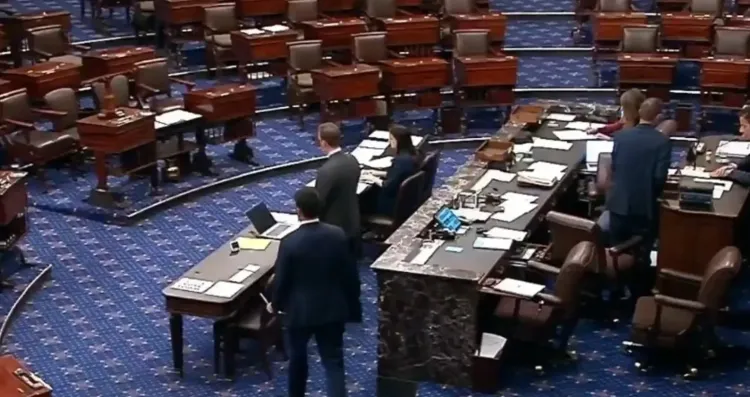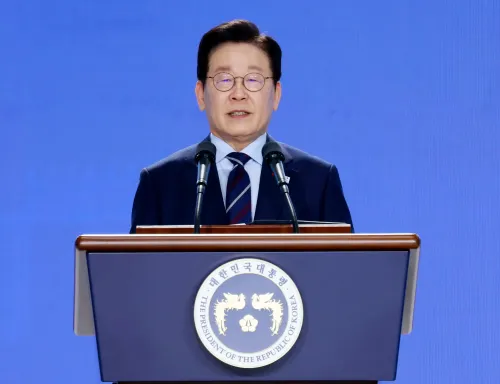Did the US Senate Just Challenge Trump’s Global Tariffs?

Synopsis
Key Takeaways
- The US Senate voted 51-47 against Trump's tariffs.
- The resolution received bipartisan support from four Republican senators.
- It highlights a challenge to Trump's trade policies and legislative authority.
- The measure is likely to face challenges in the House.
- This is part of a broader discussion on US trade relations.
Washington, Oct 30 (NationPress) The US Senate has taken a significant bipartisan stance against President Donald Trump’s trade policies, casting a vote to prevent his sweeping tariffs on global imports.
The resolution was passed with a vote of 51-47, garnering support from four Republican senators — Mitch McConnell and Rand Paul from Kentucky, Susan Collins of Maine, and Lisa Murkowski of Alaska — who joined the Democrats in their opposition to the tariffs.
This measure was approved with a simple majority, circumventing the typical 60-vote requirement for most legislative actions.
This action marks the third challenge this week to Trump’s trade strategy, although it is anticipated to face obstacles in the Republican-majority House, rendering it mostly symbolic.
Democrats initiated the vote under a rarely utilized provision of the International Emergency Economic Powers Act, invoked by Trump in April when he announced a national emergency regarding “structural imbalances in the global trading system.”
This declaration allowed for a 10 percent baseline tariff on all foreign goods — an initiative Trump referred to as “Liberation Day” back in April.
Senator Ron Wyden of Oregon, who spearheaded the resolution, accused the President of exceeding his authority.
“The Senate is not a spectator to the workings of the federal government,” Wyden stated. “In matters of trade and tariffs, Congress holds significant power.”
Conversely, Senator Mike Crapo of Idaho defended the administration, asserting that these tariffs were long overdue.
“For decades, nations have imposed barriers against American businesses without facing repercussions,” he remarked. “The President's negotiations are yielding positive results.”
The Senate vote occurred shortly after Trump revealed plans to reduce tariffs on China following discussions with Chinese President Xi Jinping, which might indicate a shift in the prolonged US-China trade conflict.
The US Supreme Court is set to hear arguments next week in a lawsuit concerning Trump-era reciprocal tariffs.










